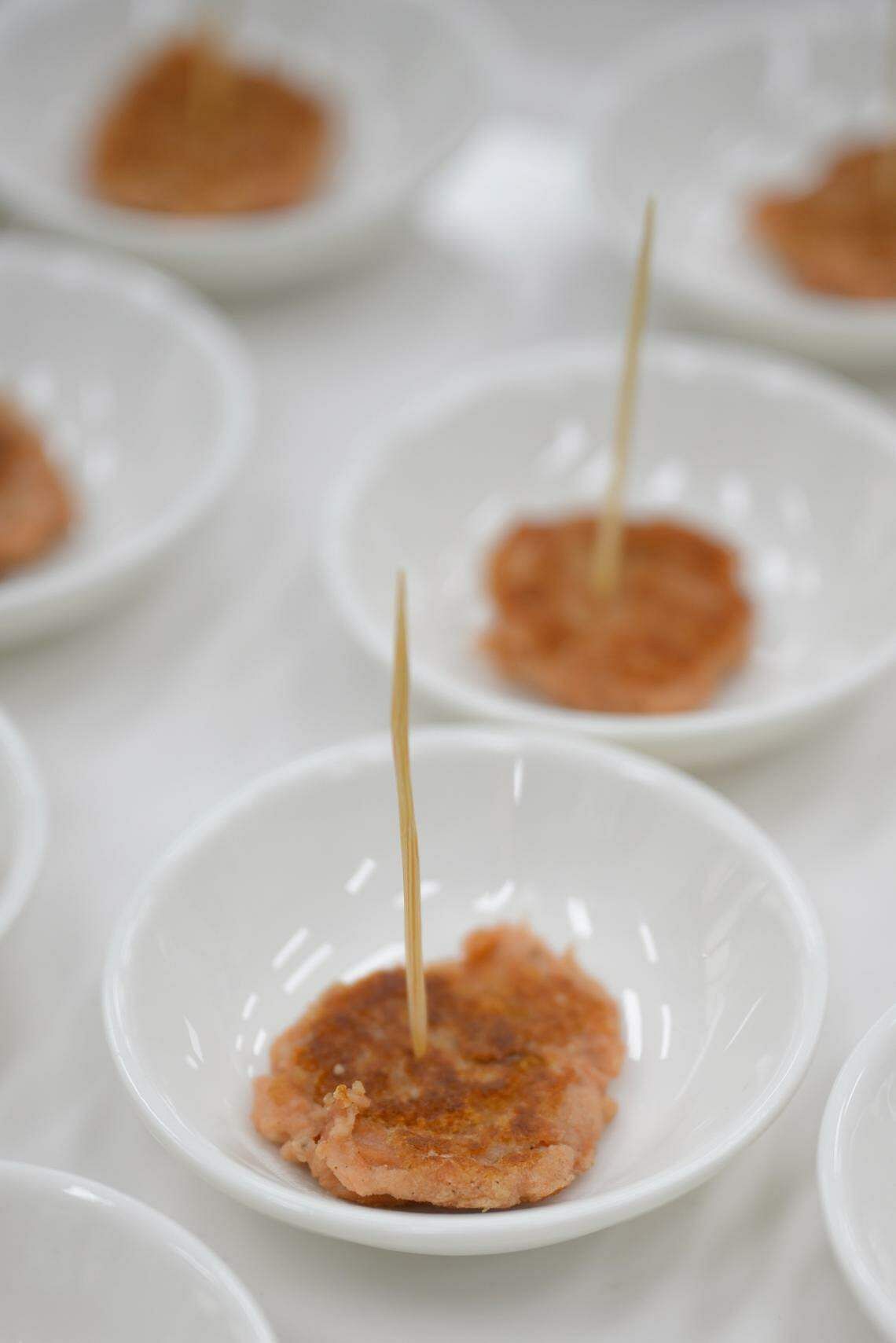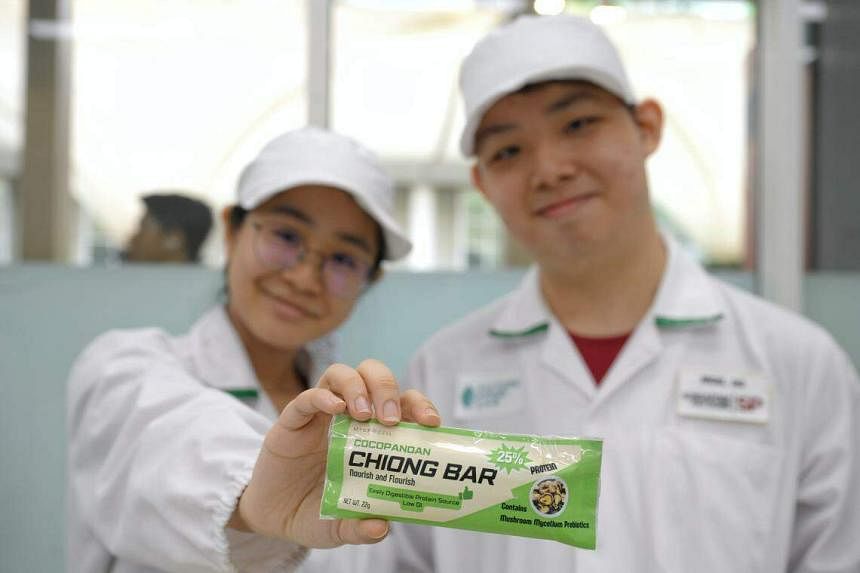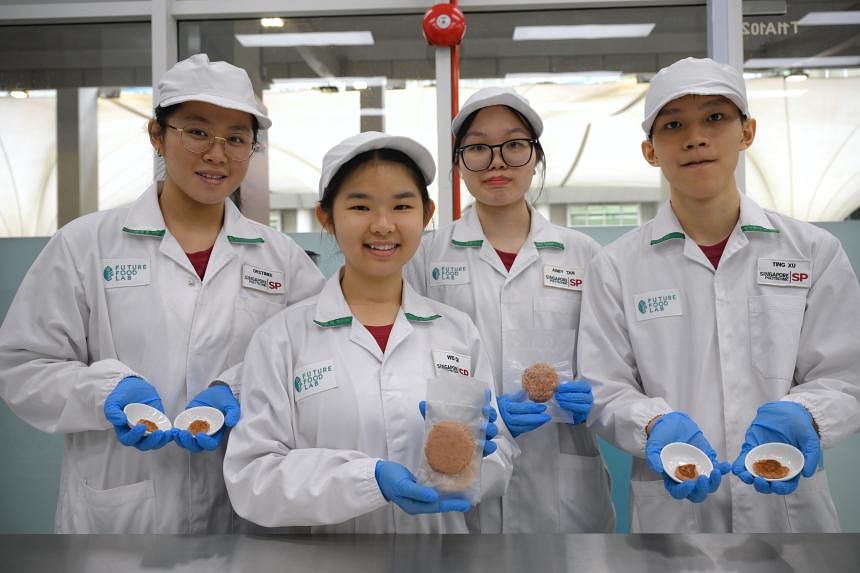SINGAPORE– Over more than 10 weeks, Singapore Polytechnic (SP) students developed different sustainable food products such as a low-sodium plant-based meat patty and a high-fibre protein bar that incorporates mushrooms.
These are some examples of food innovations that SP hopes to drive with its new Future Food Lab (FFL) launched on April 17.
Minister of State for Education Gan Siow Huang, who was the guest of honour at the event, said the launch of SP’s FFL was in line with the national push to upscale Singapore’s capacity for manufacturing novel food products and to attract investments in research and development.
The facility will also support Singapore’s 30 by 30 vision of enhancing food security, with the goal to have 30 per cent of local food needs met through domestic production by 2030, through research and exploring alternative food manufacturing sources and processes.
Apart from serving as a teaching facility, FFL also houses three food tech companies – Mycosortia, Mycrocell and Kosmode Health – which will provide mentorship to diploma in food science and technology (DFST) students working on their final-year projects or students who aspire to create innovative food products.
These three companies will also work with students under SP’s Industry Now Curriculum (INC), a programme that allows students to work with companies on real-life industry projects in place of taking conventional classroom modules.
Ms Ng Su Ling, senior manager at SP’s department of industry and partnerships, said this is a “win-win for everyone”, as companies get to groom future talent and enjoy state-of-the-art facilities and space in FFL without having to pay rent. At the same time, students and teaching staff can benefit from the technical expertise by keeping abreast of the latest industry developments and technologies.
Third-year DFST student Esther Chong, 21, who just completed the INC programme, and her team developed a plant-based meat patty called “Matty” under the guidance of Dr Anli Geng, co-founder and director of Mycosortia.
The food upcycling company focuses on converting okara – a by-product of soya milk and tofu production – into a ready-to-eat protein called FibProt.
This was used in the patty as a healthier and more sustainable food binder in place of the widely used cellulose gum, which has been associated with potential risks such as gut inflammation, reduced nutrient absorption, and even cancer.

Ms Chong said she and her teammates benefited from collaborating with a food tech company as they received constructive feedback on how to improve the taste and texture of their product.
Dr Geng also guided the team on which research papers to refer to, how much of the protein to use, and how to incorporate it into the meat patty, said Ms Chong.
The food lab also lets students tap companies’ business expertise.
For example, Ms Charlene Hong, 19, said Mr Raymond Tham, founder and managing director of Mycrocell, taught her and her DFST teammates about the operations of a start-up company and how to pitch ideas. Under his guidance, they developed a protein bar called “Chiong Bar”. They intend to incorporate into the bar mushroom mycelium, a fungi’s root network which Mycrocell cultivates as an alternative source of protein.

Ms Gan reiterated the importance of a skilled workforce in the food manufacturing sector: “To feed the future, we need to not just have the right technologies and strategies. We also need to have the right people.
“Our people have always been and always will be our greatest asset. And in this critical industry, we will need the best minds, the right hearts and the relevant skills to be a part of this ecosystem, to contribute to innovation and sustainability.”

